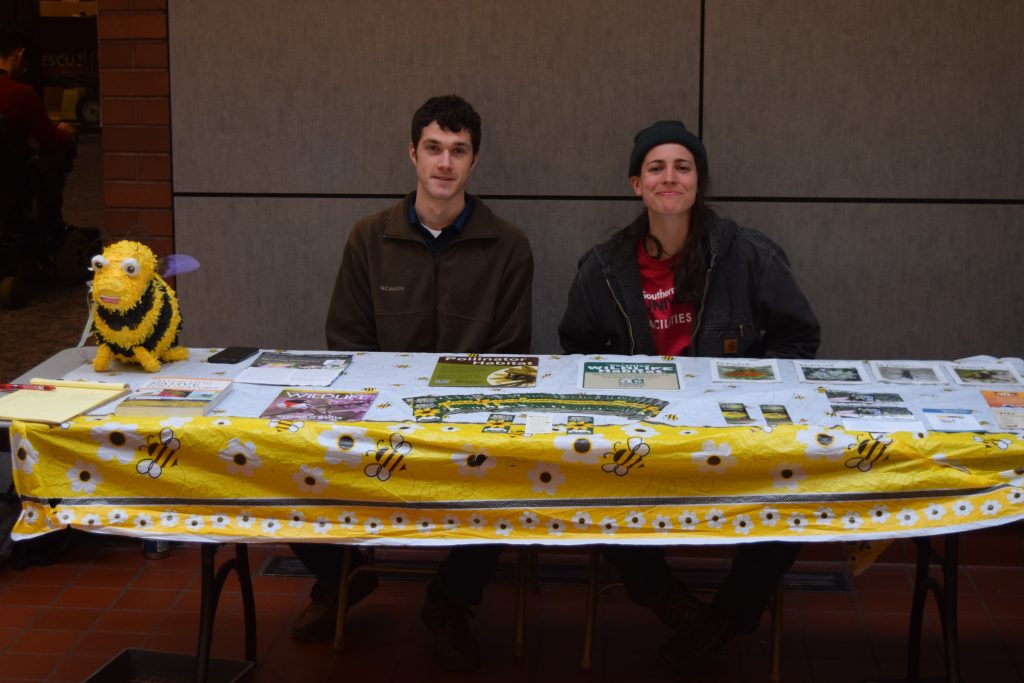
Since April of 2015, Southern Oregon University has been recognized as the nation’s first Bee Campus USA, according to SOU’s Landscape Services website.
Ever since, committee chairs Jamie Hickner and Cal McRoberts, as well as Michael Oxendine, have been working to make SOU a safe place for pollinators. Their most recent attempt in protecting pollinators has been to re-establish the Beekeeping Club which could not carry on from last year due to a loss of student leadership.
What exactly is Bee Campus USA? According to Michael Jones, PEAK (Professional, Experience, Achievement, and Knowledge) Student for Landscape Services, this program, “Recognizes campuses that follow an impressive range of practices and policies that support pollinators.”
In order to live up to that title, Oxendine explained SOU has “Created more than 20 designated pollinator gardens on campus and [installed] educational signs in these areas.” The gardens along with the nine honey bee hives found at the ECOS Community Garden at the Farm at SOU are safe havens for bees to thrive and rebuild their colonies. Oxendine, a leader on this project, helped SOU gain the status of a Bee Campus, and has continued to lead projects to protect pollinators.
In Jan. of last year, the bumblebee was put on the endangered species list, making the need for a Bee Campus even more necessary. McRoberts explained, “By mowing down our native landscape and replacing it with roads, buildings, golf courses, etc., we have created a food desert for our pollinators.”
Though bees continue to die off at a rapid rate, McRoberts is hopeful the Bee Campus USA status will help bring the population back. “I believe it could make a lasting impact on our pollinators in a positive way and even stop the decline if more campuses made the pledge to be a Bee Campus USA.”
According to Hickner, there are now “32 campuses that have achieved ‘Bee Campus’ status. The goal is that eventually every campus in the world will be a Bee Campus or at least embrace a set of policies and practices that benefit bees and other pollinators.”
The Bee Team is looking for more collaborators to join their committee to help spread awareness and to continue helping the bees on campus. According to Oxendine, “The Bee Team is planning to host a few free pollinator workshops on campus this year, build pollinator beds on campus, re-launch the Bee [keeper] Club at SOU, plant milkweed to attract and tag monarch butterflies, and host an educational planting party for the Talent Outdoor Discovery Program.”
These projects are all to help pollinators, and McRoberts is hopeful that the Bee Team will “Create a club that will outlast the students and leave a legacy for pollinators on SOU campus.”



